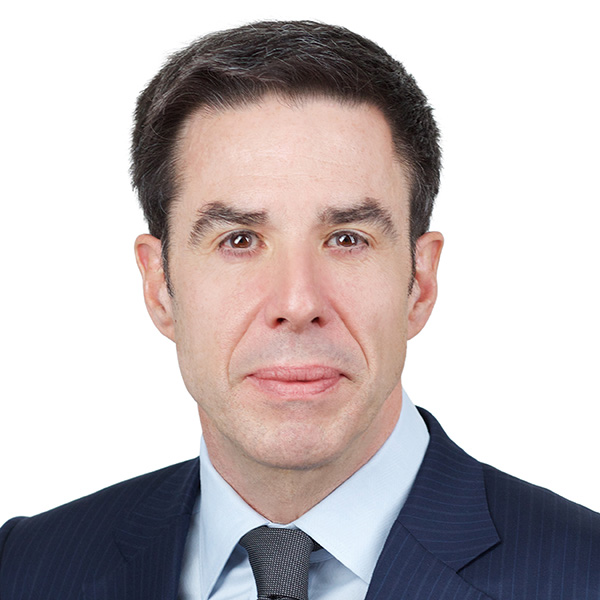We think decarbonization helps promote both value creation and value protection for investors. As the transition accelerates, that sentiment is starting to become more pervasive, according to executives at three KKR portfolio companies who joined us recently for a Climate Week event in New York moderated by Emmanuel Lagarrigue, Global Co-Head of KKR’s Climate strategy.
- Tom Reichert, CEO of ERM, the world’s largest sustainability consultancy, says sustainability is increasingly integral to overall corporate strategy.
- Steven Meersman, Founder and Director of Zenobē, says that the renewable battery-and-charging solutions company is helping clients think through the complexity of electrification projects.
- Stephanie Perry, COO of solar and storage developer Avantus, says that even though many think solar panels are a settled technology, her company believes their cutting-edge research and capabilities in the broad development process will set it apart from its peers.
Here are a few takeaways from the conversation at Climate Week NYC 2024.
ERM: Corporations Increasingly See Sustainability as Strategic
Many large companies are considering at the highest levels how sustainability can be a strategic advantage at a time when climate and energy risks are changing rapidly, Reichert said.
“The big change in the last two years is that the conversation has moved away from, ‘Let’s set a target and decarbonize because it looks good,’ to a much more sophisticated and specific conversation: ‘How can we win in these conditions?’” Reichert said.
Data centers, he noted, are a topical example. They are essential to ongoing digitalization, including artificial intelligence, that promises to affect companies across many industries. However, data center developers and operators must think about where they are sourcing energy and water to gain acceptance from local communities and ensure long-term viability. Likewise, car companies that want to sell into certain markets must take into account local requirements and preferences for emissions.
The notion of risk is also changing, he noted. After all, 2023 was the fourth year in a row that global insurers have paid out $100 billion or more in damages from natural catastrophes, according to a report from the insurer Swiss Re. The reality of contemporary business is planning for floods, wildfires, extreme heat, and other climate-related risks.
Zenobē: Planning for Complexity
Zenobē sits at the intersection of decarbonization in two major industries, energy and transportation, as it works to electrify fleets of buses and trucks. It also builds and operates transmission-scale battery storage, expertise that complements its fleet electrification services. The company is a leader in the United Kingdom and Australia and is now entering the U.S. market. One of Zenobē’s most important services is helping customers work through the complexity of electrification, according to Meersman.
Entities like schools, government bodies, or companies sometimes decide to purchase electric buses and trucks without confirming with the utility provider the types of infrastructure needed and the timeline to install it.
“If you add 200 electric buses, it’s like 1.5 to two Empire State Buildings popping up in your backyard in terms of the electrical load,” he said.
An electrification project has more complexities, including training bus drivers to plug in vehicles at the end of their runs, especially when that kind of work may not be included in drivers’ routine duties. Zenobē owns electric vehicles and leases them to corporations and institutions, so it must underwrite long-term leases based on technology, including batteries, that is mature but still evolving.
Yet, the kinds of institutions that Zenobē serves have plenty of incentives to go electric: As vehicle-to-grid capabilities improve, buses that absorb electricity at reduced off-peak prices during the day can release energy into the grid at night. “People aren’t necessarily electrifying their fleets to be green, they’re doing it to save money,” Meersman said. “You’re turning something that's ecologically sustainable into something financially sustainable.”
A fireside chat during Climate Week NYC

Avantus: Looking Out to the Future
KKR recently became Avantus’ largest shareholder, a leading developer of utility-scale solar projects in the Western U.S., this year. The company currently has a 30 gigawatt (GW)+ pipeline of solar projects, most with large energy storage capacities. Perry shared that Avantus is currently focused on driving towards a domestic supply chain, which has gained momentum since the passing of the Inflation Reduction Act.
The company is also keeping an eye on advanced technologies. Perry pointed out Avantus’ large-scale projects typically have long development timelines, which requires planning well in advance.
“We think about technology and technological advancement not just in the next year or two, but on a 5-10-year horizon,” she said. “Technology can give us a comparative advantage if we can drive down levelized costs of energy or fit more megawatts of capacity on less land, for example.”
One interesting area the company is watching closely is long-duration storage solutions that would allow systems to store power for 8-12+ hours overnight rather than the prevailing four hours. Perovskite solar cells, a thin film technology, layered on crystalline silicon, promise to be more efficient and a potential solution to the land scarcity problem. Sodium-ion batteries are also on the company’s long-term watch list as a future contender to today’s lithium-ion batteries. Sodium is very abundant, safe and lithium-ion factory lines could be easily repurposed to produce sodium batteries.
Conclusion
The discussion with our executives stressed that decarbonization can be viewed as an opportunity. There is the opportunity to help all businesses create and protect value by focusing on their most material sustainability concerns, the opportunity to invest behind companies on the forefront of the transition, and more generally, opportunities to invest behind businesses that are trying to solve the issues that could potentially threaten the long-term viability of businesses or even entire industries in a changing world. That’s exactly why we strive to make the material opportunities and risks related to sustainability an integral part of our decisions about where we invest our capital.






